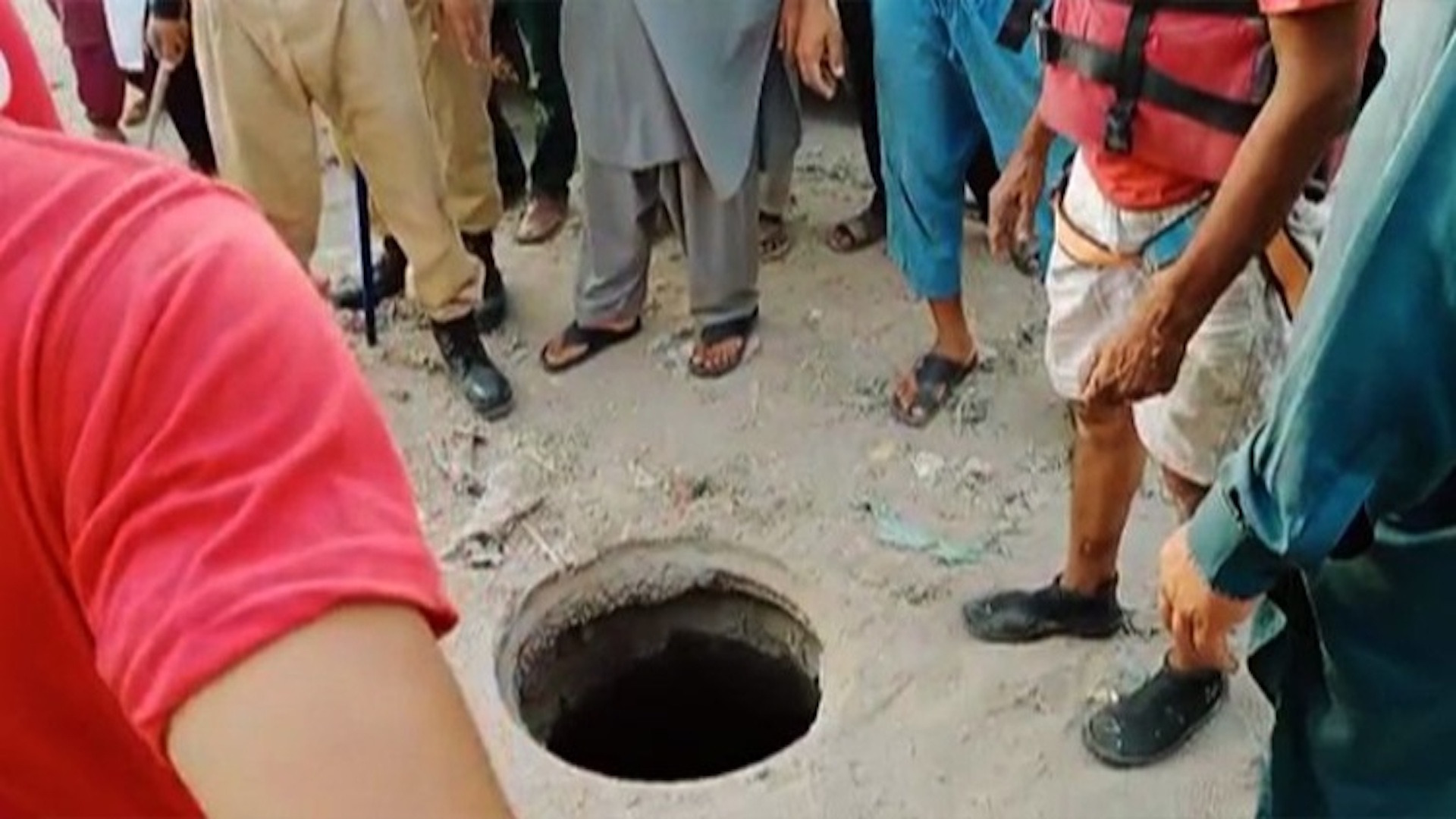For children, 14 August is all about flags on the rooftops, shops adorned with fairy lights, and waving the Pakistani flags with pride while enjoying their favorite sweets. That’s what the 2-year-old Noman was eager to do, before he tragically lost his life that fateful day.
On Pakistan’s Independence Day this year, Noman roamed the streets near Karachi’s Memon Goth, until he fell into one of the many uncovered manholes and lost his life.
Noman’s father, Rehmat Ullah, is a resident near Memon Goth and works as a rickshaw driver. After looking for his son for half an hour and prodding the drain with a stick, they found the body.
Noman was loved by everyone and was born six years after his parents’ marriage.
Deaths resulting from uncovered manholes have become common in Karachi. At least 68 people were reportedly killed by these manholes in Karachi this year alone.
Moreover, there is a lack of proper data because many parents do not report their children’s deaths in the first place.
A similar incident occurred in Orangi Town when Razia, a 50-year-old woman, fell into a hole. A man who dived in to save her also lost his life after inhaling toxic gases. In September, a four-year-old girl named Umra Baloch, lost her life due to a sewerage drain in Mawach Goth. The family staged a protest and accused the relevant authorities of criminal negligence.
Deaths resulting from uncovered manholes have become common in Karachi. At least 68 people were reportedly killed by these manholes in Karachi this year alone.
Zahid Farooq, an official at the Urban Resource Center, said that responsibility for this negligence lies on the authorities of the area and its jurisdiction. The union council requests the town to provide how many covers they need, and the town, along with the Karachi Water and Sewerage Board (KWSB), provides covers to the union council. Then, the UC distributes them.
In some cases, both the UC and the KWSB are directly involved, but primarily it is the UC’s responsibility.
Moreover, he stated that the contributing factors to these cases are “rain, load shedding, and a lack of streetlights in the area.”
He also pointed out the “quality of construction,” citing an example from Jehangir Road with weak infrastructure manholes. The main reason, according to Farooq, is the lack of “surveys.” Often, covers get broken, and there is also a shortage of resources to cover all the uncovered manholes. Furthermore, he emphasized that public participation is necessary.
Farooq said that people should approach the Union Council via verbal complaint if they encounter any opened manhole cover in their area. “Proper infrastructure, effective governance, and public participation are necessary to address these issues,” he added.
Aftab Chandio, the chief engineer of the Karachi Water and Sewerage Board (KSWB), stated that a new policy has been implemented by the mayor, which includes the distribution of manhole covers. Chandio explained that responsibility is allocated based on specific areas, and many incidents that have occurred fall under the jurisdiction of other departments.
“There are more than three lakh manholes in Karachi,” said Chandio. Additionally, he pointed out that manhole covers are being stolen by drug addicts, and they also face quality issues. “We have distributed manhole covers to all 246 union councils in Karachi,” he added.
`
He emphasized that recent incidents observed in Karachi are not within KSWB’s jurisdiction. Chandio noted that systems installed by the union councils are not being adequately maintained. Furthermore, he added that both the tragic events that happened in Memon Goth and Mowach Goth fall under the purview of the Public Health Engineering Department and the Rural Development Department.
The writer is a Karachi-based journalist passionate about human rights, social issues, and minority advocacy. She tweets at @ShaeranRufus

